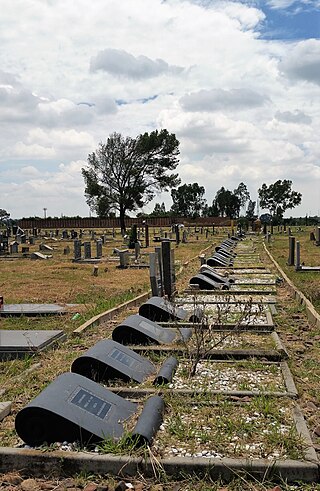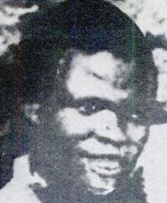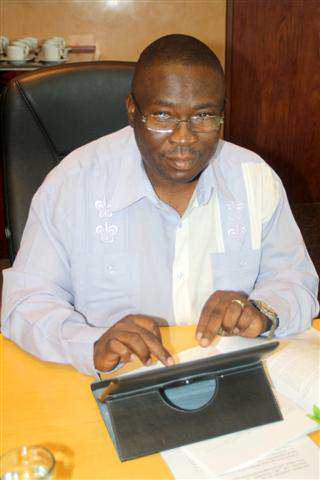Related Research Articles
The Republic of South Africa is a unitary parliamentary democratic republic. The President of South Africa serves both as head of state and as head of government. The President is elected by the National Assembly and must retain the confidence of the Assembly in order to remain in office. South Africans also elect provincial legislatures which govern each of the country's nine provinces.

Winnie Madikizela-Mandela, also known as Winnie Mandela, was a South African anti-apartheid activist and politician, and the second wife of Nelson Mandela. She served as a Member of Parliament from 1994 to 2003, and from 2009 until her death, and was a deputy minister of arts and culture from 1994 to 1996. A member of the African National Congress (ANC) political party, she served on the ANC's National Executive Committee and headed its Women's League. Madikizela-Mandela was known to her supporters as the "Mother of the Nation".

Police brutality is the excessive and unwarranted use of force by law enforcement against an individual or a group. It is an extreme form of police misconduct and is a civil rights violation. Police brutality includes, but is not limited to, asphyxiation, beatings, shootings, improper takedowns, and unwarranted use of tasers.

The Sharpeville massacre occurred on 21 March 1960 at the police station in the township of Sharpeville in the then Transvaal Province of the then Union of South Africa. After demonstrating against anti-black pass laws, a crowd of about 7,000 black protesters went to the police station. Sources disagree as to the behaviour of the crowd: some state that the crowd was peaceful, while others state that the crowd had been hurling stones at the police and that the mood had turned "ugly". The South African Police (SAP) opened fire on the crowd when the crowd started advancing toward the fence around the police station; tear-gas had proved ineffectual. There were 249 victims in total, including 29 children, with 69 people killed and 180 injured. Some were shot in the back as they fled.

Angela Thokozile Didiza is a South African politician who is currently serving as Minister of Agriculture, Land Reform and Rural Development since May 2019. A member of the African National Congress (ANC), she was the Minister of Agriculture and Land Affairs from June 1999 to May 2006 and Minister of Public Works from May 2006 to September 2008.
Adriaan Johannes Vlok was a South African politician. He was Minister of Law and Order in South Africa from 1986 to 1991 in the final years of the apartheid era. Facing increasingly intense opposition and political unrest in this period, the South African government – through the State Security Council of which Vlok was a member – planned and implemented drastic repressive measures, including hit squads, carrying out bombings and assassination of anti-apartheid activists.
South Africa since 1994 transitioned from the system of apartheid to one of majority rule. The election of 1994 resulted in a change in government with the African National Congress (ANC) coming to power. The ANC retained power after subsequent elections in 1999, 2004, 2009, 2014, and 2019. Children born during this period are known as the born-free generation, and those aged eighteen or older, were able to vote for the first time in 2014.
Tony Sithembiso Yengeni is a South African politician and former anti-apartheid activist. He represented the African National Congress (ANC) in the National Assembly from May 1994 to March 2003, including as Chief Whip of the Majority Party from November 1998 to October 2001. He was a member of the ANC National Executive Committee between 1994 and 2022, though he resigned from legislative politics after he was convicted of fraud in 2003.

Internal resistance to apartheid in South Africa originated from several independent sectors of South African society and took forms ranging from social movements and passive resistance to guerrilla warfare. Mass action against the ruling National Party (NP) government, coupled with South Africa's growing international isolation and economic sanctions, were instrumental in leading to negotiations to end apartheid, which began formally in 1990 and ended with South Africa's first multiracial elections under a universal franchise in 1994.
This article covers the history of the Pan Africanist Congress of Azania, once a South African liberation movement and now a minor political party.
Andries Tatane was a South African citizen who was shot and killed by police officers during a service delivery protest in Ficksburg. His murder was captured on TV by a media crew that was covering the protest on that day and shocked the whole country. Seven police officers accused of his murder and assault were acquitted in the Ficksburg Regional Court in March 2013.

Malesela Benjamin Moloise was a South African poet and political activist who came to international attention following his arrest and subsequent execution by the government of South Africa. From Soweto, Moloise worked as an upholsterer before turning to poetry during his time on death row. In 1983, Moloise was arrested for the 1982 murder of Phillipus Selepe, a black security policeman who assisted in capturing three African National Congress (ANC) members. Although he initially confessed to the murder, he later retracted the statement during his trial. Moloise's death sentence sparked national and international outrage and was seen as emblematic of South Africa's brutal crackdown on anti-apartheid activists.

The flag of South Africa from 1928 to 1994 was the flag of the Union of South Africa from 1928 to 1961 and later the flag of the Republic of South Africa until 1994. It was also the flag of South West Africa to 1990, when that territory was under South African administration. Based on the Dutch Prince's Flag, it contained the flag of the United Kingdom, the flag of the Orange Free State, and the flag of the South African Republic (respectively) in the centre. A nickname for the flag was Oranje, Blanje, Blou.

Amos Fish Mahlalela is a South African politician from Mpumalanga. He has been the Deputy Minister of Tourism since May 2019 and has represented the African National Congress (ANC) in the National Assembly since May 2014. In June 2023, he was additionally elected as the Provincial Chairperson of the ANC Veterans' League in Mpumalanga.
Kopeng Obed Bapela is a South African politician who is currently serving as the Deputy Minister of Public Enterprises since 6 March 2023. Before that, he was Deputy Minister of Cooperative Governance and Traditional Affairs from 2014 to 2023. A member of the African National Congress (ANC), he has been a member of the National Assembly since 2002 and a deputy minister since 2010.
Events in the year 2023 in South Africa.
Mpho Morepye Sephwe Lekgoro is a South African politician who represented the African National Congress (ANC) in the National Assembly from 1999 to 2007. He was formerly an ANC Youth League activist.
Jan van Eck was a Dutch–South African politician who served in opposition in the South African House of Assembly from 1986 to 1994. He represented the Progressive Federal Party from 1986 to 1987 and the Democratic Party from 1989 to 1992; at other times, he sat as an independent.
Annelizé van Wyk is a South African politician who served in the National Assembly from 1999 to 2014, excepting a brief hiatus in 2009. She represented the United Democratic Movement (UDM) until April 2003, when she crossed the floor to the African National Congress (ANC). She chaired the Portfolio Committee on Police from 2012 to 2014.
Sediane Danny "Sechaba" Montsitsi was a South African politician and former anti-apartheid activist. One of the leaders of the 1976 Soweto uprising, he later represented the African National Congress in Parliament from 1994 to 2014.
References
- ↑ "General Notice: Notice 1319 of 1999 – Electoral Commission: Representatives Elected to the Various Legislatures" (PDF). Government Gazette of South Africa . Vol. 408, no. 20203. Pretoria, South Africa: Government of South Africa. 11 June 1999. Retrieved 26 March 2021.
- 1 2 3 4 5 6 7 8 9 "A police officer points a finger at his own colleagues". The Mail & Guardian. 7 September 1989. Retrieved 15 April 2023.
- 1 2 3 "Rebel South African policeman is arrested". Herald Scotland. 14 November 1989. Retrieved 15 April 2023.
- 1 2 3 4 5 6 7 "S. Africa Hero: Color Him Blue". Los Angeles Times. 23 October 1989. Retrieved 15 April 2023.
- 1 2 3 Wren, Christopher S. (9 September 1989). "Pretoria officer tells of abuses". The New York Times. ISSN 0362-4331 . Retrieved 15 April 2023.
- ↑ "General Fixit, the cop who seldom solves it". The Mail & Guardian. 14 September 1989. Retrieved 15 April 2023.
- 1 2 3 "Rockman gets the sack". The Mail & Guardian. 22 March 1990. Retrieved 15 April 2023.
- 1 2 "Racial and Political Tensions Split South Africa's Police Force". Christian Science Monitor. 27 October 1993. ISSN 0882-7729 . Retrieved 15 April 2023.
- 1 2 "Rockman asks to quit parliament". IOL. 15 March 2000. Retrieved 15 April 2023.
- ↑ "Minutes of proceedings of the Constitutional Assembly" (PDF). Department of Justice and Constitutional Development. 24 May 1994. Retrieved 2 April 2023.
- ↑ "Members of the National Assembly". Parliament of South Africa. 3 June 1998. Archived from the original on 28 June 1998. Retrieved 12 April 2023.
- 1 2 "The National Assembly List of Resinations and Nominations". Parliament of South Africa. 2 June 2002. Archived from the original on 2 June 2002. Retrieved 2 April 2023.